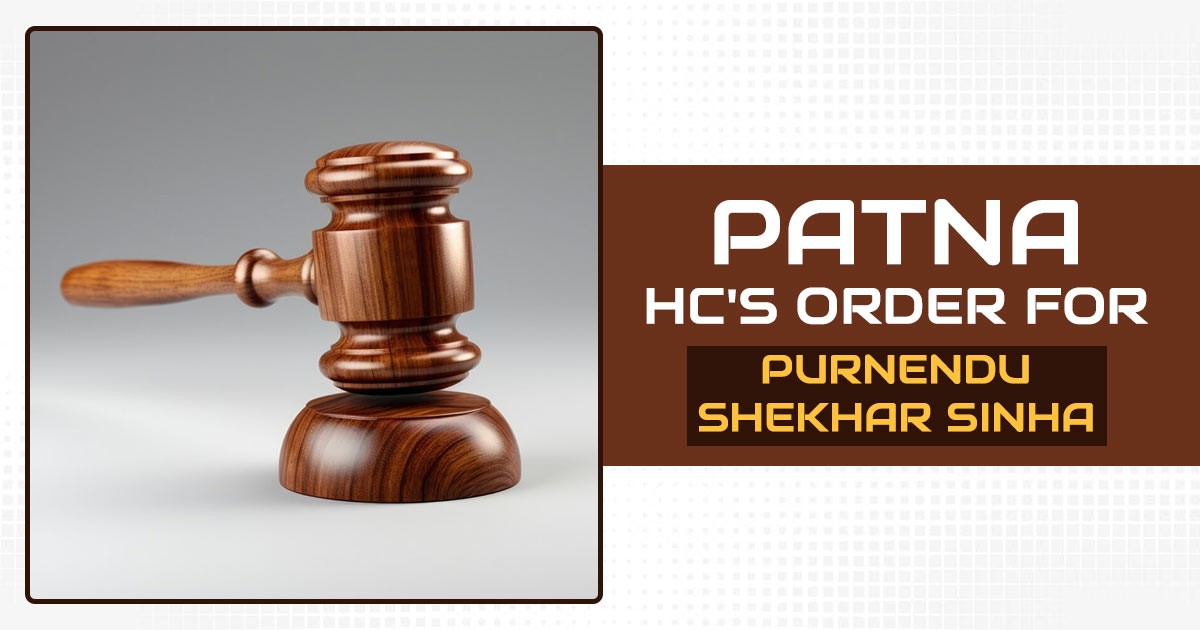
The Patna High Court ruled that differentiation between government employees and other employees for leave encashment exemption is neither discriminatory nor violative of Article 14 of the Constitution of India.
The bench of Chief Justice K. Vinod Chandran and Justice Rajiv Roy noted that the legislature must have the freedom to select and classify persons, properties, and income that it would tax and/or not tax.
Hence the differentiation that the state made between the employees of the central and state governments on the one hand and the other employees on the other in Section 10 (10 AA) of the Income Tax Act, 1961, is neither biased nor a breach of Article 14 of the Constitution of India. In 1981, the petitioner joined the State Bank of India and, after putting in more than 36 years of service, retired dated August 31, 2017.
Before retirement, the applicant has filed the writ petition. He incurred a case that once retired, post deduction of the income tax he was qualified for Rs 6,70,000, he would be obtaining a sum of nearly Rs 4,70,000 since the remaining amount is obligated to tax. He is in the State or Central Government Services, no deduction on the income tax portion would have been made from the leave salary payable to the petitioner during his retirement, and he shall have been qualified to obtain the whole sum.
The applicant furnished that it is just due to the operation of Section 10(10AA) of the Income Tax Act, 1961, which distinguishes between similarly placed groups of employees, that he lose so much money.
Section 10(10AA) does not place any cap on the leave period and amount of leave salary, which will be waived from the income tax net during retirement in the matter of government employees, whether they are in Central or State Services, while for the matter of employees of other establishments, the leave period is capped at 10 months, and the maximum amount exempted from income tax is as per the stated limit as the Central Government notify in the Official Gazette, it is in the year 2017, to be Rs. 3 lakh, which implies that any amount that is more than Rs. 3 lakh will be obligated to tax.
The petitioner argued that the rules of leave salary are articulated under different service rules applicable to employees of different organizations, while under the Central Civil Services (Leave) Rules, 1972, the encashment of earned leave standing at the credit of a retiring government employee is permitted on the retirement date, subject to a maximum of 300 days or 10 months, while personnel retiring from bank services, the leave encashment is admissible as per the maximum of 240 days only.
The petitioner is not related to the specified duration in the Income Tax Act, 1961, but with the cap on the maximum amount waived from tax, which affects his interests, which directed him to file the ongoing writ application. The applicant requested that in the income tax which is the personal tax, the distinction incurred between government employees and non-government employees is invalid categorization to grant specific advantages to one type and deny the others of them.
The employees of the bank, and the public sector undertakings, cannot be deemed distinctly beneath the equality clause of Article 14 of the Constitution of India, the applicant argued. The petitioner’s contention is been denied by the court that two different sets of employees who are not situated equally and form a different class cannot be correlated under Article 14 of the Constitution of India.
The distinction made between the Central and State Government employees vis-à-vis others is a reasonable classification that is proper. “A taxation law cannot claim immunity from the equality clause that is enshrined in Article 14 of the Constitution of India, and it has to pass the test. This Court is also conscious of the fact that considering the intrinsic complexity of fiscal adjustments of diverse elements, the state has wide discretion in the matter of classification for taxation purposes,” the court stipulated.
Read Also: Tax Exemption Limit Raised to INR 25L For Non-Govt Employees
As per the court the petitioner, a retired employee of the State Bank of India is not qualified to claim parity with the employees of the Central and State Governments, and in that background, the deductions incurred could not be interrupted.
| Case Title | Purnendu Shekhar Sinha Versus The Union Of India |
| Order No | Patna High Court CWJC No.12326 of 2017 |
| Date | 26.02.2024 |
| For the Petitioner | Mr. Kundan Kumar Sinha, Advocate Mr. Bipin Krishna Singh, Advocate |
| For the Respondent | Dr. K.N. Singh, Senior Advocate & ASG Ms. Archana Sinha, Advocate |
| Patna High Court | Read Order |